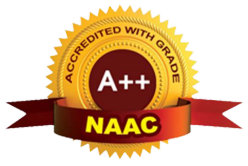National Seminar on Wisdom Tradition, Cultural Creativity and Social Integration, at the university campus on 13th and 14th August 2015
12 August, 2015
Indira Gandhi National Open University (IGNOU) will organize a National Seminar on Wisdom Tradition, Cultural Creativity and Social Integration, at the university campus on 13th and 14th August 2015.
Ancient Indian wisdom has two dimensions – the eternal, and the temporal. While the basic doctrines (spiritual traditions) constitute its perennial dimension, religious practices, social institutions and norms, customs, manners, rights and duties of individuals, social and political ethics, nationalism, democracy, environment, economic progress etc. constitute its temporal dimension. The perennial dimension guides, governs, sustains and supervises the temporal dimension which moves within the bound of space and time. Indian tradition knowledge especially in wisdom tradition is highly scientific and takes a holistic organic view of human life and society.
In today’s context, it is relevant to rediscover the underlying reasons that has ruined national unity and marginalized the Indian consciousness in terms of caste, ethnicity, religion etc. because this tradition offers unique solutions of various chronic crises like environmental havocs, climate change, mental tension, human stress and so on. With a view to preserve such a unique culture and make it meaningful and purposive in the context of fast changes in Information and Communication Technology (ICT) and correspondingly fast global changes in environment, climate, people’s life style, changes in social relationships etc, it is pertinent to examine:
i) What is the interconnection between Wisdom Tradition and Social Integration?
ii) How has the Indian wisdom contained in Indian scriptures (three authentic sources of knowledge - Upanisads, Bhagwad Gita, Brahmsutras), Guru Grantha Sahib, Jainism, and Buddhism been constructive to promote social harmony?
iii) What is the relevance of the teachings of vedanta for social harmony and national integration?
iv) Does the Indian spiritual tradition essentially dealing with transcendence reality address the issue of economic progress which deals with temporal dimension of worldly life? If yes, in what sense and how?
v) How does Indian traditional knowledge promote the nationalism and fosters democratic values in the society?
vi) How are monotheism and polytheism relevant in today’s context of globalization and multi culturalism and what have been their after effects?
This seminar will deliberate and discuss , six themes have been identified for different sessions.
- Indian Knowledge Tradition and Cultural Diversity
- Traditional Knowledge, Nationalism and Democratic Value System
- Spirituality and Well-being of the People
- Traditional Wisdom and Scientific Temper
- Traditional Wisdom and Economic Progress
- Spiritual Oneness and Social Integration



